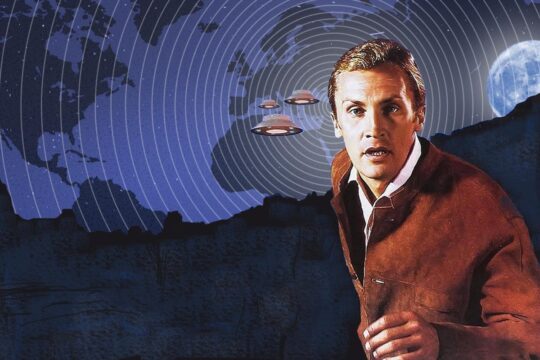This week saw transitional justice faced once again with classic tensions between law and politics, justice and peace. As the ICC, supposed to be the “police force” of international justice, came under more fire, a US court delivered an important judgment linked to war crimes in Liberia, a country in the midst of elections where impunity still rules for the crimes of the civil war.
A court in Philadelphia on Wednesday found Mohammed Jabbateh (“Jungle Jabbah”) guilty of charges related to atrocities committed during the first Liberian civil war (1989-96). He is expected to be sentenced in coming months and could face up to 30 years in jail. In order to prove that Jabbateh entered the United States and obtained asylum under false pretences, prosecutors had to demonstrate that he was a high-ranking commander of the ULIMO rebel group and committed atrocities during the Liberian civil war. They brought 20 witnesses from Liberia who testified about horrific acts committed by Jabbateh and his soldiers, including cannibalism, rape, murder and slavery, according to Swiss NGO Civitas Maxima, which has been monitoring the trial. “This is the first verdict giving some measure of redress to Liberian victims who have been yearning for justice for too long,” said Hassan Bility, director of the Global Justice and Research Project (GJRP) in Monrovia. “This case shows that Liberians do not have to accept the status quo of impunity in Liberia.”
ICC, Kenya and Burkina Faso
Still in West Africa, International Criminal Court (ICC) Prosecutor Fatou Bensouda was in Mali, where she faced criticism from civil society, notably women, for the Court’s slowness in investigations launched in 2013 and its failure so far to prosecute rapes committed by Jihadists in northern Mali. These NGOs are demanding that the ICC extend its case against Ahmad al-Faqi al-Mahdi, who was convicted in September 2016 for destroying mausoleums in Timbuktu. They say he committed many other crimes in the North, including Sharia law punishments, for which he should be held accountable. "Our investigations are continuing (into) other crimes... sexual crimes and crimes against peacekeepers, killings and all those," Bensouda told reporters in Bamako, but did not give further details.
Bensouda also promised that a complaint filed by civil society organizations in Bamako in early October against former French President Nicolas Sarkozy for allegedly starting the war in Libya and causing the death of its late dictator Muammar Gaddafi would be examined like all the other communications and allegations that the ICC receives. This is no doubt a symbolic complaint which has no chance of being followed up, but it reflects recurrent criticism in Africa that the ICC goes after African leaders and not Western ones.
Allegations against the ICC’s first prosecutor Luis Moreno Ocampo by a consortium of French media fuel this sentiment. Amongst other serious allegations, he is accused of having requested the detention of Ivorian ex-president Laurent Gbagbo without any legal basis at the time. “The conduct of international criminal justice and the men and women who represent it must be irreproachable, even after the end of their mandate,” writes JusticeInfo editorial advisor Pierre Hazan. “The `sheriff `or ex-sheriff of international justice should not be able to put himself (or herself) above the law, nor lose their moral compass.”
Ocampo is also reported to have worked behind the scenes at the ICC to find an “honourable” way out for Kenyan President Uhuru Kenyatta, whom Ocampo had himself indicted for crimes against humanity for his role in violence following 2007 elections that left some 1,000 people dead. As our Nairobi correspondent Aileen Kimutai reports, Kenya is currently in turmoil as it faces an election re-run on October 26 and Kenyatta is calling for constitutional reforms that would undermine the judiciary’s powers to oversee elections.
Another country where people are still waiting for justice is Burkina Faso, which on October 15 commemorated the 30th anniversary of former president Thomas Sankara’s assassination. This crime has never been punished, although an investigation has finally been opened. “This investigation is one of the most important cases for the people of Burkina Faso,” writes our correspondent in Ouagadougou Morgane Le Cam. “It took the ouster of Blaise Compaoré’s regime in October 2014 for an investigation to finally be opened, 28 years after the event.” Some 15 people have been indicted in this case handled by military justice, and two international arrest warrants have been issued. The first is for Compaoré himself, now exiled in Côte d’Ivoire, and the second for the alleged head of the commando that riddled Sankara with bullets.






